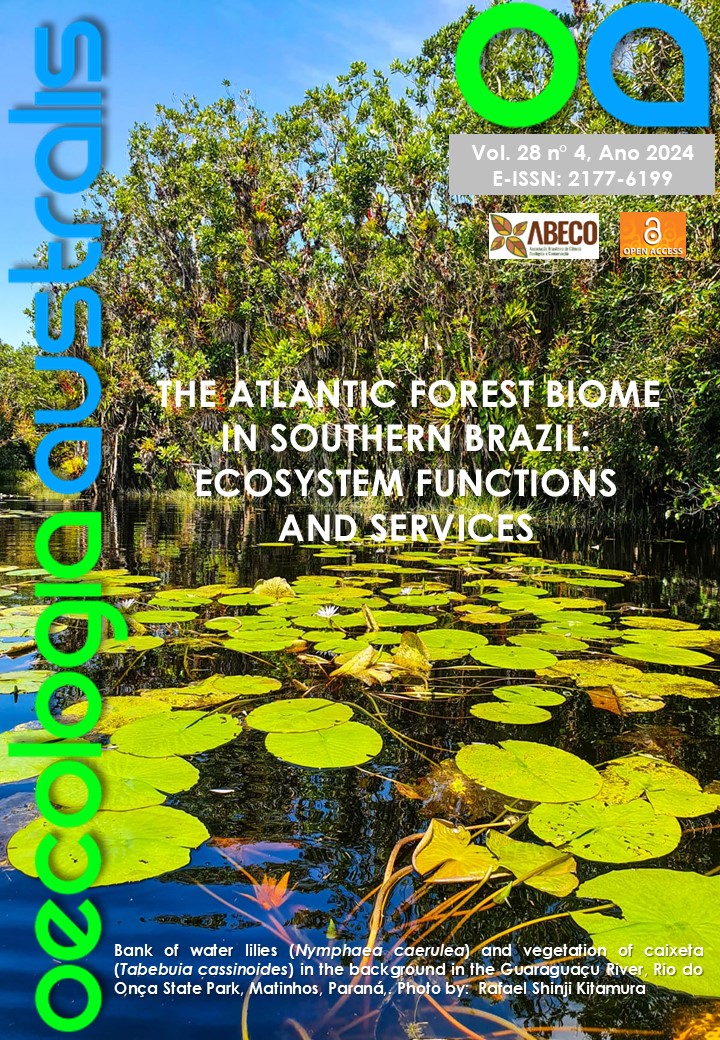FROM MISINFORMATION TO POLLUTION: HOW COVID-19 POLICIES AFFECT THE IGUAÇU RIVER AND THREATEN THE ATLANTIC FOREST IN SOUTHERN BRAZIL
COVID-19 drugs pollute the Iguaçu River and impact Atlantic Forest
DOI:
https://doi.org/10.4257/oeco.2024.2804.02Abstract
A hidden threat emerged during the COVID-19 pandemic: pharmaceutical contamination in the Iguaçu River. Flowing through Curitiba and several Atlantic Forest fragments, the river became polluted due to a surge in medications, including antibiotics, psychiatric drugs, and controversial “COVID kit” drugs. Although only 15% of COVID-19 patients needed antibiotics, they were prescribed in 59% of hospitalizations and experienced a 683.9% sales increase. Sales of ivermectin and hydroxychloroquine increased by 857% and 126% in the first year of the pandemic, respectively, and antidepressant sales rose by 32% from 2020 to 2023. Poorly treated in wastewater, these pharmaceuticals accumulate in river sediments, posing long-term ecological risks. Misinformation and government promotion of unproven drugs contributed to this rise. The Iguaçu River now transmits the consequences of misguided policies and fake news, threatening the Atlantic Forest fragments adjacent to the Iguaçu River in Paraná biodiversity. Therefore, immediate action is needed to implement sustainable practices and educate the public on the impact of pharmaceutical pollution.


